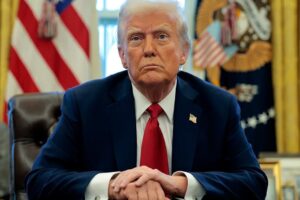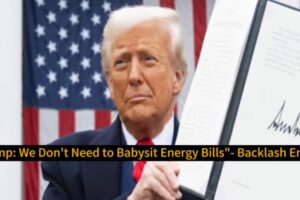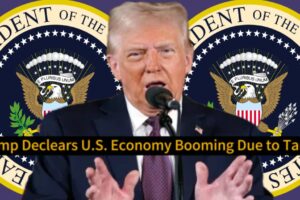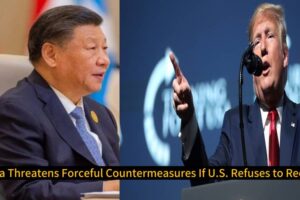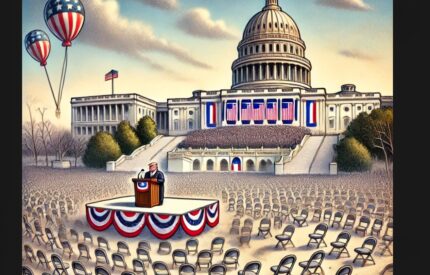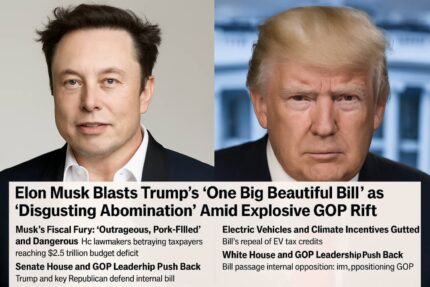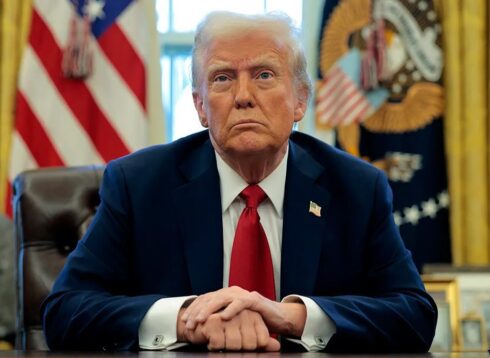The decision to move President-elect Donald Trump’s inauguration ceremony indoors to the Capitol Rotunda has sparked widespread disappointment among his supporters. Traditionally held outdoors to accommodate large crowds and symbolize openness, the ceremony’s relocation marks a significant break from a 40-year tradition. While Trump’s team cited concerns about severe weather, critics and attendees suspect other motives, primarily fears of a low turnout.
Supporters who had traveled from across the country expressed their frustration. Videos circulating on social media show attendees lamenting their wasted expenses and shattered expectations. One Oklahoma resident shared, “We came all the way from Oklahoma for this, and now we’re not going to see it. We might as well have stayed home and watched it on TV. It’s a bummer.” Many attendees prepared for cold weather, only to learn that the event was restricted to a select few indoors.
Financial Strain on Supporters
Thousands of Trump’s loyal supporters reportedly spent significant amounts of money on travel, accommodation, and event tickets, only to feel betrayed by the last-minute change. Reports suggest that over 220,000 tickets were sold, but most attendees were left stranded outside, unable to witness the swearing-in ceremony.
Disillusioned supporters took to social media to vent their frustrations. One post read, “I’m out about $5,000 for this. I was there January 6th; it was heartbreaking. That’s why I paid so much to come back for redemption.” Tammy McDonald, another supporter, lamented, “My mom and I spent thousands of dollars to be here, and now we’re just walking around lost.” Critics of the move highlighted that MAGA Republican Congress members, who had coordinated ticket distributions, failed to inform their constituents about the change, leaving many asking for refunds.
Criticism from Media and Political Figures
The decision has drawn sharp criticism from media personalities and political figures. Ben Meiselas of Meidas Touch highlighted the irony, stating, “This was going to be a very small crowd at Donald Trump’s inauguration, which is why he blamed the weather to bring the outside ceremonies indoors.” He also noted the economic impact on attendees, many of whom were left stranded and disappointed.
Roland S. Martin, on his show “Roland Martin Unfiltered,” echoed these sentiments. “This decision was made solely by President-elect Trump. Washington, D.C., which is usually bustling during inaugural events, feels unusually quiet. This is a stark contrast to past inaugurations, such as Obama’s in 2009, where people braved frigid temperatures to attend,” Martin observed. Critics speculated that Trump’s anxiety over potential ridicule for a small crowd size drove the decision, rather than weather concerns.
Economic and Emotional Fallout
The economic implications of the decision were significant. Hotels in D.C., expecting full bookings, reported only 70% occupancy. Many attendees who had paid premium prices for accommodations were left frustrated, with one commentator sarcastically remarking, “Boohoo.” The sudden change also affected vendors and local businesses that rely on the influx of visitors during inaugural events.
Beyond the financial losses, the emotional toll on supporters was evident. Videos showed attendees expressing feelings of betrayal. One man from Texas said, “We flew in from Texas for this. Tons of us are here, and we brought cold-weather clothes. We’ve been waiting a long time for this, and we want to see the President sworn in, even if we’re shivering.”
Speculations and Future Implications
Critics argue that the move indoors reflects Trump’s focus on optics rather than inclusivity. Many pointed to his history of holding events in extreme weather conditions during his campaign, suggesting that the weather excuse lacked credibility. Some speculated that Trump’s decision aimed to cater to wealthy donors and oligarchs, sidelining his most loyal supporters.
This controversy adds to Trump’s reputation as a polarizing figure. As frustration mounts among his base, questions arise about the long-term loyalty of his supporters. For many, this event reinforced perceptions of Trump prioritizing personal gain over his followers’ interests, further fueling divisions within his political sphere.



